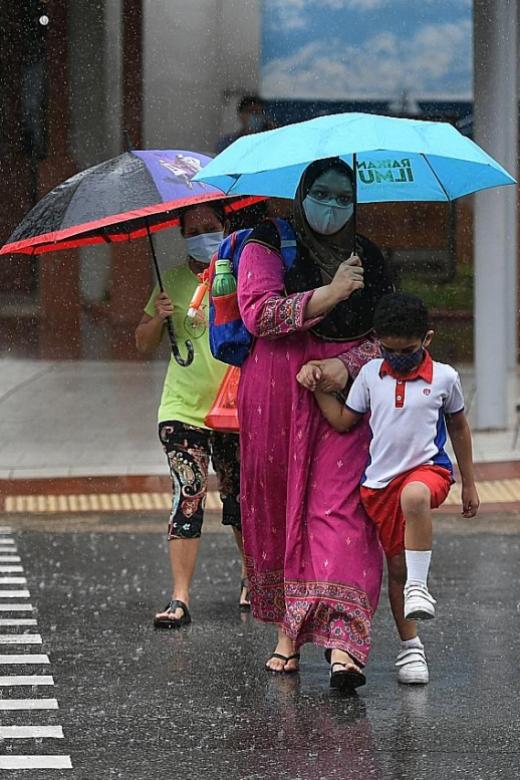Wetter, cooler weather in June and July not unusual: Experts
Other parts of the world may be experiencing scorching summers but Singaporeans have been donning rainy-day gear.
Rainfall and a particularly wet June have brought cooler weather.
This is expected to persist throughout this month, with the mercury dipping to 22 deg C on some days and more rainfall than in the past fortnight, the weatherman said last Thursday.
Climate experts, however, have pointed out that the cool mid-year weather Singapore is seeing is not unusual. That being the case, this June was still the wettest in the last decade and one of the coolest in the last 20 years.
A total rainfall of 233.8mm exceeded the 213mm recorded in June 2011 and this June's mean temperature of 28.1 deg C was 0.2 deg C lower than the long-term June average.
Last month also saw flash floods in places including Jurong Town Hall Road and New Upper Changi Road, and video clips online showed some vehicles partially submerged near Changi Fire Station.
February and June are usually the driest months of the year, and monthly rainfall - except for January, February and June - has increased from what was recorded between 1875 and 2017, said Professor Benjamin Horton, director of the Earth Observatory of Singapore.
Get your umbrellas, raincoats, boots ready. Never too late to shop on Qoo10.
Weather and climate scientist Koh Tieh Yong said the cooler and wetter weather in June and July this year is partially caused by a cooler sea surface and higher surface pressure in the central tropical Pacific Ocean.
Since winds move from areas of high pressure to areas of low pressure, moist winds converged in equatorial South-east Asia, causing more rain.
Looking at rainfall and mean temperature data for June and July over the past 20 years, there is a clear oscillating rhythm where temperature and rainfall peak in some years and fall in other years, said Associate Professor Koh.
Get The New Paper on your phone with the free TNP app. Download from the Apple App Store or Google Play Store now



